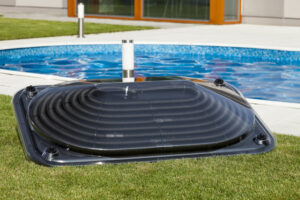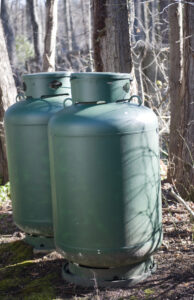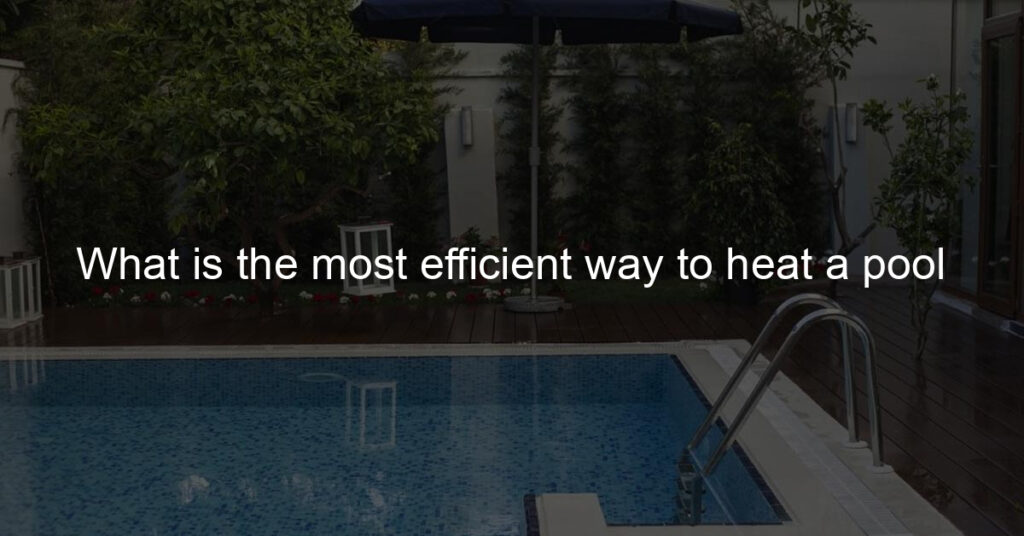What Is The Most Efficient Way To Heat A Pool
Do you know you can soak in a warm, inviting pool, even during chilly weather, without breaking the bank?
That’s right! Heating a pool efficiently is an art that marries technology, climate considerations, and sound economics, ensuring your swimming pleasure is not diminished by cold temperatures or high costs.
We are about to navigate through a variety of solutions, ranging from solar heaters to heat pumps, even exploring some unconventional methods that will make you reconsider everything you know about heating your pool.
Strap in, as we dive into the depths of pool heating systems and surfaces with the most cost-effective, energy-efficient solutions that will transform your swim into a cozy, budget-friendly experience.
Understanding the Basics of Pool Heating
Pool heating is the process of increasing the temperature of the water in a swimming pool, typically using external heating systems. The goal is to create a comfortable swimming environment, especially during cooler months. It’s essential to keep in mind the principles of thermodynamics in this context, as heating a pool involves transferring heat from a source to the pool water.
The Science Behind Heat Transfer in Pools

In pool heating, there are three main modes of heat transfer: conduction, convection, and radiation. Conduction happens when heat moves through a solid material (like the pool’s floor), convection when heat circulates through liquids or gases (like the water itself or the surrounding air), and radiation when heat travels through space (like sunlight warming the water). Pool heaters primarily rely on conduction and convection to warm the water, while solar heating also takes advantage of radiation.
Factors Influencing Pool Heating Efficiency
Several factors can influence the efficiency of a pool heater. These include the ambient temperature, humidity, wind speed, the size and depth of the pool, and even the color of the pool’s interior. A pool located in a windy area, for instance, will lose heat more quickly due to evaporation. Additionally, heaters have different efficiencies based on their design and technology, with some options being more energy-efficient than others.
Types of Pool Heaters: A Brief Overview
There are three primary types of pool heaters: solar, heat pump, and gas. Solar pool heaters use panels to collect heat from the sun, transferring it to the pool water. Heat pumps utilize electricity to extract heat from the surrounding air (or sometimes groundwater), intensifying it and transferring it to the pool. Gas heaters burn natural gas or propane, using the resulting heat to warm the pool.
Solar Pool Heaters: Harnessing the Power of the Sun

Solar pool heaters are a popular choice for those seeking an environmentally friendly and cost-effective solution. These systems use solar collectors—often installed on a roof—that absorb the sun’s heat and transfer it to the pool water via a heat exchanger. While their efficiency is weather-dependent, solar heaters can provide significant savings over time, especially in sunny climates.
Heat Pumps: Leveraging the Ambient Air
Heat pumps, including air-source and ground-source types, are efficient devices for heating pools. They capture heat from the surrounding air or groundwater and intensify it using a compressor before transferring it to the pool. Heat pumps can be more efficient than gas heaters, especially in mild climates, but they also depend on the ambient temperature to operate effectively.
Gas Heaters: Traditional, Yet Effective

Gas pool heaters, which burn natural gas or propane to heat water, are a traditional choice. They can heat a pool quickly, regardless of the outside temperature, but tend to have higher operating costs due to fuel prices. Despite their energy intensity, gas heaters remain a popular choice for their speed and effectiveness, particularly for pools that aren’t used regularly.
Evaluating the Efficiency of Each Heating Method
When assessing efficiency, it’s crucial to consider both energy usage and cost-effectiveness. Solar heaters, for instance, use a free and renewable energy source, making them highly energy-efficient, though they may not be as effective in less sunny locales. Heat pumps are generally efficient in mild climates, while gas heaters, although less efficient, can heat water quickly in any weather.
Cost Analysis: Balancing Upfront Investment and Operating Costs
The upfront costs of pool heaters can vary significantly. Solar heaters and heat pumps tend to be more expensive to install but offer lower operating costs, while gas heaters usually have lower initial costs but higher fuel expenses. Therefore, it’s essential to balance the upfront investment with the anticipated operating costs and the expected lifespan of the unit when making a decision.
The Role of Pool Covers in Heat Retention

Pool covers play a vital role in heat retention, significantly reducing heat loss due to evaporation. By covering the pool when not in use, you can maintain the water temperature for longer periods, reducing the load on your heating system and, thus, saving energy and costs.
The Impact of Pool Size and Depth on Heating
The size and depth of a pool significantly impact its heating requirements. Larger, deeper pools require more energy to heat due to the larger volume of water. Additionally, deeper pools can also experience more significant heat stratification, with warmer water on top and cooler water below, which needs to be considered in the heating strategy.
Climate Considerations for Pool Heating
Your local climate significantly affects your pool heating choices. Solar heaters excel in sunny climates, while heat pumps perform well in areas with mild temperatures. Gas heaters can effectively heat pools in colder climates. Consider the typical temperatures, solar availability, and seasonal changes when choosing a heater.
Maintenance and Longevity of Different Heating Systems
Maintenance and longevity are important considerations when choosing a pool heater. Solar systems and heat pumps typically have fewer moving parts and can last longer with proper care, though they may require professional servicing. Gas heaters might require more regular maintenance due to their combustion systems but can offer many years of service if well-maintained.
Innovative Technologies in Pool Heating
The pool heating industry continually innovates, offering new technologies that improve efficiency and reduce costs. These include advancements in heat pump technology, more efficient solar collectors, and smarter pool covers that can optimize heat retention. Staying informed about these innovations can help you make the best decision for your pool heating needs.
Choosing the Right Pool Heater: An Energy-Efficient Decision
Choosing the right pool heater involves evaluating many factors—your climate, pool size and usage, upfront and ongoing costs, and your environmental impact preferences. By understanding each heating system’s benefits and drawbacks, you can make an energy-efficient decision that keeps your pool warm and inviting without unnecessary costs or energy use.
here’s an example of a comparative table outlining various heating solutions for different pool types:
| Pool Heating Solution | Ideal For | Initial Cost | Operating Cost | Maintenance |
| Solar Pool Heater | Outdoor pools in sunny climates | High | Low (free solar energy) | Low (annual check-up) |
| Heat Pump | Indoor/Outdoor pools in mild climates | High | Moderate (electricity) | Low (annual servicing) |
| Gas Heater | Indoor/Outdoor pools in colder climates | Moderate | High (gas or propane) | Moderate (regular servicing) |
| Pool Cover | All pool types for heat retention | Low-
Moderate |
Low (reduce heating demand) | Low (periodic cleaning) |
This table gives a rough comparison of different pool heating solutions. The actual costs and maintenance requirements will depend on specific products, pool size, usage, and local climate, among other factors.
In conclusion,
Choosing the most efficient way to heat a pool requires careful consideration of various factors such as climate, pool size, initial and operating costs, and maintenance requirements.
Solar pool heaters harness the power of the sun and offer long-term cost savings, particularly in sunny climates. Heat pumps are effective in mild weather, while gas heaters provide quick heating in colder regions but come with higher operating costs.
Pool covers play a crucial role in heat retention, reducing energy consumption. It’s important to weigh the benefits and drawbacks of each heating solution before making a decision. Regular maintenance ensures optimal performance and extends the lifespan of the chosen system.
By making an informed choice, you can enjoy a comfortably warm pool while minimizing energy usage and maximizing cost efficiency.














